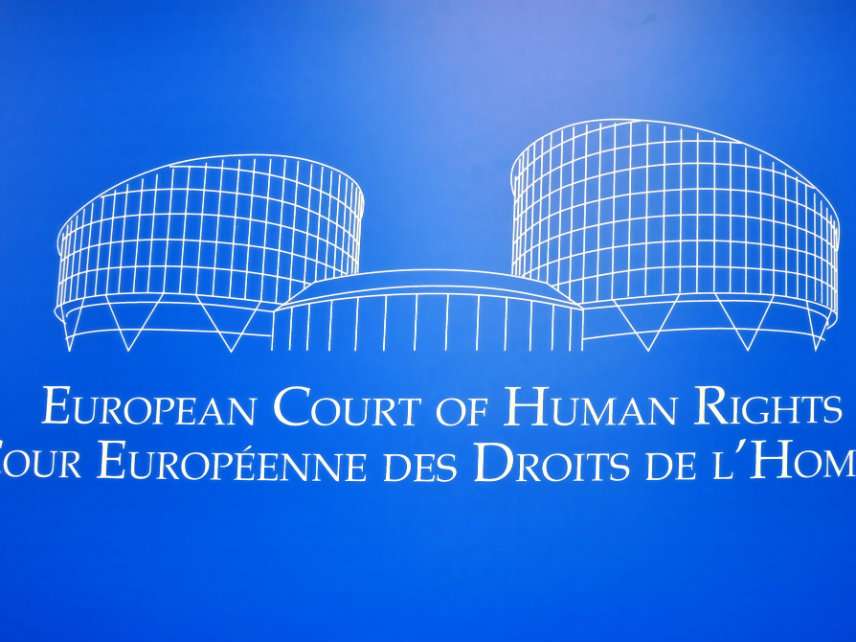European Court: Woman's Criticism of Muhammad Doesn't Count as Free Expression
Her statements may have been offensive. But that doesn't mean she shouldn't have a right to make them.

An Austrian woman accused of defaming the Prophet Muhammad is not protected by the right to freedom of expression, the European Court of Human Rights (ECHR) ruled today. Her statements represent "an abusive attack on the Prophet of Islam which could stir up prejudice and threaten religious peace," the court declared.
The woman, identified only as E.S., led what she billed as informational seminars on Islam back in 2009. At one of those seminars, she called Muhammad a pedophile because of his marriage to a girl named Aisha, who was just 6 years old at the time. "A 56-year-old and a 6-year-old? What do you call that? Give me an example? What do we call it, if it is not pedophilia?" she said.
In 2011, an Austrian court convicted her of "disparaging" Islam and fined her 480 euros, the ECHR said. E.S. fought the conviction on several grounds. For one, she said her statements about Muhammad were true. She also claimed that she wasn't defaming the prophet but rather contributing "to a public debate" about him, according to the ECHR. Finally, she argued that religious groups should have to "tolerate even severe criticism."
The ECHR disagrees. In its ruling, a seven-judge panel argues that while Muhammad may have married a 6-year-old, there's a difference between child marriage and pedophilia:
by accusing Muhammad of paedophilia, the applicant had merely sought to defame him, without providing evidence that his primary sexual interest in Aisha had been her not yet having reached puberty or that his other wives or concubines had been similarly young. In particular, the applicant had disregarded the fact that the marriage with Aisha had continued until the Prophet's death, when she had already turned eighteen and had therefore passed the age of puberty.
The court also rejects the woman's "public debate" argument. E.S. claimed to be an expert on the subject of Islam. As a result, the court replies, "she had to have been aware that her statements were partly based on untrue facts and apt to arouse (justified) indignation in others." The purpose of her statements was not to contribute to a public debate, the court declares, but rather to show "that Muhammad was not a worthy subject of worship."
The ECHR acknowledges that criticizing religious groups is fair game. But "statements…based on (manifestly) untrue facts" are not protected under Article 10 of the European Convention of Human Rights, the judges say.
One passage of the ruling seems to sum up the court's reasoning: "Presenting objects of religious worship in a provocative way capable of hurting the feelings of the followers of that religion could be conceived as a malicious violation of the spirit of tolerance."
M.S.'s statements may indeed have been offensive. But that doesn't mean she shouldn't have a right to make them. She wasn't calling for violence against Muslims; she was simply saying some mean things about Muhammad.
Reason's Jacob Sullum has explained on multiple occasions why offending Muslims should not be a crime. As he wrote in 2015, "Sacrilege may upset people, but it does not violate their rights. By abandoning that distinction, avowed defenders of Enlightenment values capitulate to the forces of darkness."


Show Comments (142)